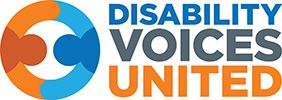With the stress of being isolated and the change in routines, it is critical that people with developmental disabilities and their families also focus on self-care. This can include eating healthy, getting enough rest, exercising both the body and mind, and caring and loving each other.
Exercise: You may not be able to go to a gym so you can set up a “home gym.” There are lots of free workout videos on YouTube. You can exercise on your floor and do resistance training. You can also go for walks and runs in the community, as long as you maintain a distance from other people. Exercise also boosts your immune system.
Diet: This is a great time to find healthy recipes online and try new foods that are plant-based and include lean meats. This is not the time to “stress eat” as this can lower your immune system. Limit your intake of sugary and fried foods.
Meditation: Meditation is a key method to reduce stress, and many people with I/DD find it to be a great tool for remaining calm. You can find many strategies for meditation online or ask friends or family who meditate for advice.
Beth Ribet, PhD, JD and Director of Repair offers these words:
We can think about healing and vulnerability as communal, and very political experiences. So I’d like to offer a little perspective, and some thoughts about healing and taking care as we navigate this immediate challenge.
When I review the Center for Disease Control guidelines, How to Prepare and Take Action for COVID-19, what strikes me is that there is virtually no information about how to heal and survive this virus, or viruses in general. While public health guidance acknowledges that those most at risk are the elderly or those who are medically vulnerable in substantial ways, there is almost no public discussion about how to maximize our chances of resisting or healing from the virus if we are exposed to it.Some of this silence makes sense. It’s new, so there are things about the disease that we simply don’t know yet.
But some of this silence is just dangerous — because there’s a lot that we know, or can learn, about how to make our bodies more resistant to the harmful effects of respiratory viruses, and more capable of healing fully and developing new antibodies that can help neutralize this virus.
One of the most important ways we can prepare, in addition to engaging in practices that minimize contagion, is to give ourselves and each other support, care, and information about how to get and stay as healthy as possible.
What works for you? What’s helped your body be more resilient? We’ve got tremendous strengths, and a lot of undervalued knowledge between us that needs to be shared. So when I notice alarm and panic, one of the things I remind myself is that collectively, we have a lot of tools that can help us all resist disease, or heal if we become sick. Those tools belong to us, whether or not the responses from our public entities are able to get beyond the cruelty of racial scapegoating, and modestly helpful but very basic reminders to disinfect and stock up groceries and water. I have a lot of faith in us, and our capacity to heal.
This is a great time to commit to rest, hydration, very healthy eating, and taking time to relax, play, and relieve stress — because all of those things strengthen immunity, as compared to racism and anxiety, which create stress, and therefore weaken immunity.Repair has created a digital message board, “Taking Care”, which you can visit here, where you can share reactions to the COVID-19 pandemic, discuss how you are doing, share or seek information about maintaining health, and discuss how we can take care of ourselves and each other.
The State Council on Developmental Disabilities has ideas for activities while sheltering in place.
